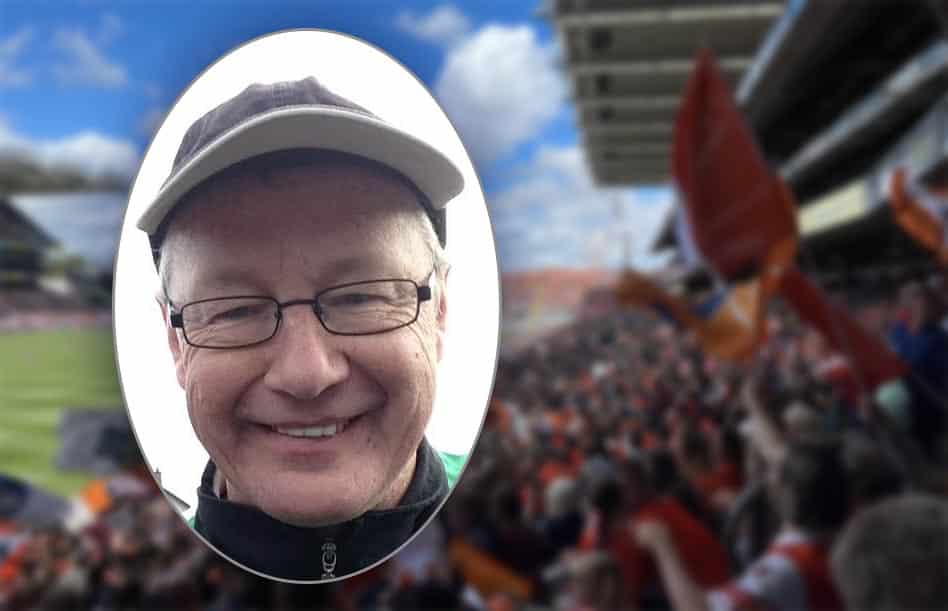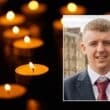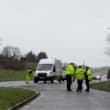
A former Armagh manager who led his side to successive Ulster titles is now fighting to win the biggest test of his life – against cancer!
Brian Canavan was one half of the ‘Two Brians’ – alongside Brian McAlinden – who led Armagh to back-to-back Ulster titles in 1999 and 2000, laying the foundation blocks for that All-Ireland title in 2002.
The 2023 Ulster final, next Sunday in Clones, will be a replay of the 2000 final against Derry – Armagh will be hoping to take the Anglo-Celt back into the Orchard county for the first time since 2008 – just as the two Brians did that day.
Brian spoke candidly to Thomas Niblock and Oisin McConville on this week’s episode of The GAA Social on BBC Sounds, where he spoke about everything from his days in management – leading what he described as Armagh greatest ever collection of players, and the infamous shooting in the family pub – The Railway Bar in Poyntzpass – which claimed the lives of Philip Allen and Damien Trainor on March 3, 1998.
The 64-year-old spoke in depth about his battle with prostate cancer and how, only for his wife, he may not have caught it in time. He wants to share his experience with as many men as possible, something he believes will ultimately save lives.
“I was fit as a fiddle, refereeing matches, working behind the bar, flying about on the bicycle Tuesdays and Wednesdays everywhere,” he said. “I was going to get tested every year for obvious things but Geraldine, my wife, says ‘you need to go and get tested for that prostate, there’s a special test for it’.
“So I went and got the test and I couldn’t believe it come back that I had prostate cancer at a certain stage. Of course, then you go through all the rigmarole of different tests and biopsies and all this, so eventually then the consultant says you’re going to have to go for treatment but it’s treatable.”
That treatment was 20 sessions of radiotherapy in the City Hospital in Belfast every day for 20 days. Those 20 days ended on Thursday this week. What lies ahead, Brian is unsure about.
“Hopefully there’s a good end to it and in most cases there is, if it’s got early enough. This is one thing I would say to every person, especially fellas I played along with, once you get to 55 or 60 it’s a simple blood test and if you can get it at that stage, it’s 100% curable. But if you let it go on, on and on, the next thing, it goes from there into your bones and then that’s when the trouble really starts, it’s incurable.
“I think people like myself, I wasn’t going for the test only for my wife. There was no physical signs; I went through it all with the consultants.
“The consultant had said to me, ‘you’re as a fit a 64-year-old as I have ever had in here’. She would see all shapes and sizes; when you get to that age a lot of people are overweight or have other ailments, but I had no history of anything whatsoever.
“Only for that blood test it would not have shown up and if I had waited for another year, another two years, that would have grown inside and it would have got worse.”
Brian said the diagnosis was a huge shock to the system, “especially when you’ve been healthy all your life”.
“But once there’s an end to it you say to yourself ‘right, when I get out of this I’m going to let every man I know all about this because it can be cured and there’s no point sitting back and saying ‘I’ll go this week go, or that week’.
“Fair dues to my wife, she pushed me out to do it because, probably if she hadn’t pushed me, I most likely wouldn’t have gone for it. And it’s only a simple blood test.”
According to Prostate Cancer UK, one in eight men will be diagnosed with prostate cancer in their lifetime; it’s the most common cancer in men, which is why Brian is adamant every man should go and get checked out.
“I would say if you’re at least 55 go and get that test, it’s curable, and it’s also treatable without radiotherapy if you get it very, very early. There’s other treatments you can get that are much simpler, much easier if you get it earlier.”
Brian recalled being at the Sligo races with his wife Geraldine when he got the call from the consultant last August.
“I could tell you, it was some shock. You’re hoping, because the doctor had told you there was something, so you’re hoping beyond hope. Thinking, maybe it’s not too bad.
“And he just said, you’re gonna need treatment for this. Fair enough, the one thing about the consultants, they tell you straight up, they’re not going to mess about and say this, that and the other.
“The worst part of it is having to tell your family, that’s the worst bit. At Christmas I had a girl home from Abu Dhabi. I had to tell them at Christmas and that’s not easy. That’s the worst part.
“They had no idea you know up until that point. I didn’t want to tell them because one of the girls was away in Abu Dhabi and I didn’t want her on her own in Abu Dhabi – well she is married out there – but I didn’t want her away from us when I was telling them.
“They came home at Christmas, they gathered around the table, I told them and it wasn’t a good occasion, let’s put it that way. But it was before Christmas, and then I said to the girls, ‘look, I am going to go with this, we’re gonna have a good Christmas and let me worry about it’. They’re worrying too, there’s no getting away from that but, you know, we’ll help each other along the way. Let’s put it that way.”
Brian described his 20 days treatment as “great craic”, he’s a man whose glass is half full but deep down, he admits, “there’s a worry there all the time”.
“Every time you get a call from the consultant, your heart’s pounding, you just don’t know what’s going to be every time a letter comes through the door.
“But there is a high rate of it being cured. I have known men who’ve had it 20 years ago, and they’re still living, you know, it’s curable. That’s the bottom line. It is curable.”
To find out more about prostate cancer, click here.





